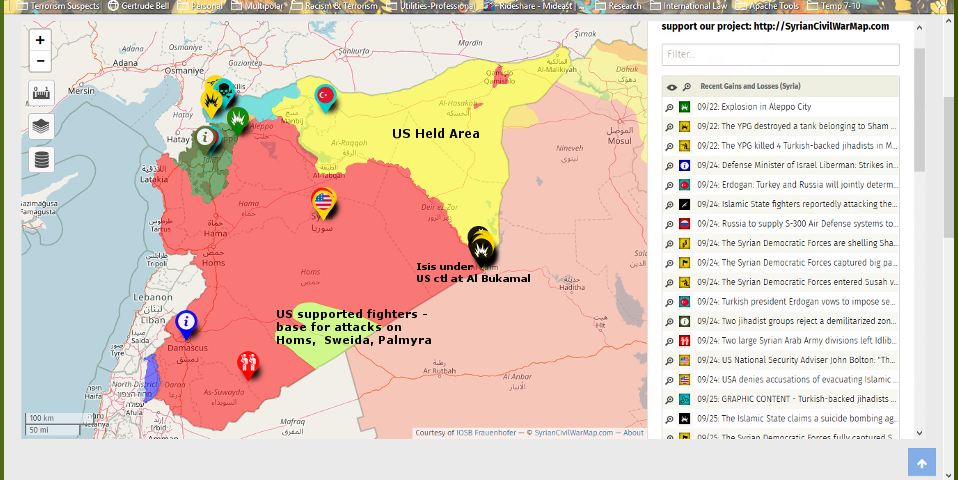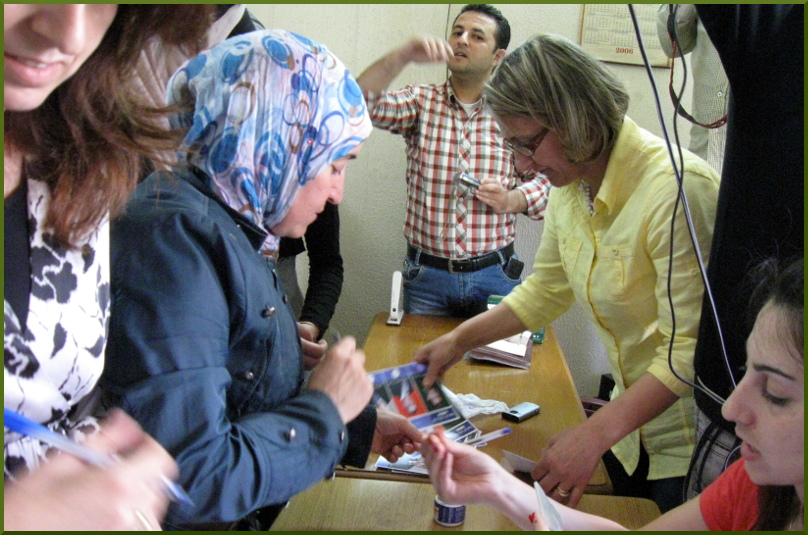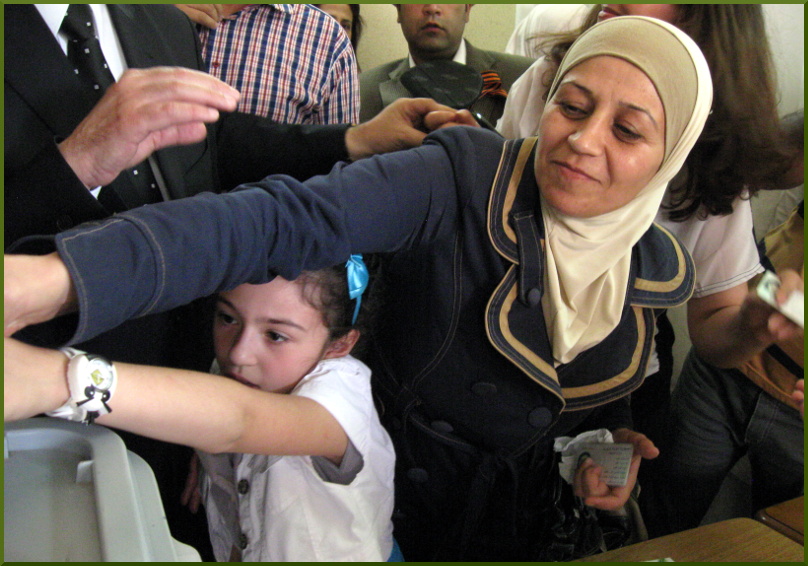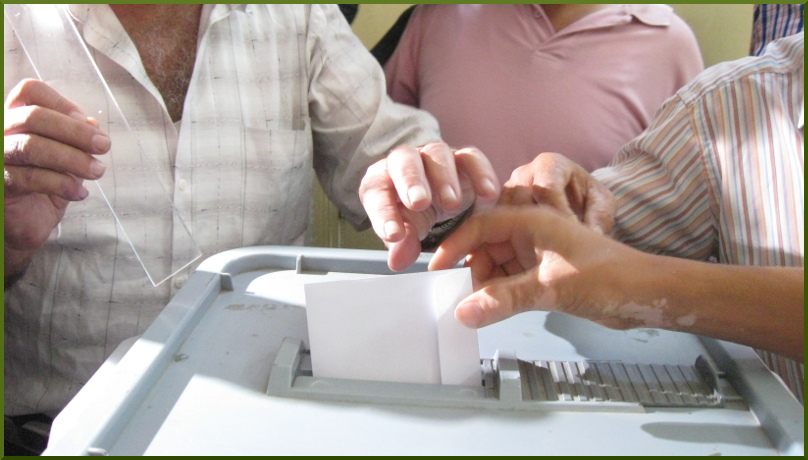Featured Image from SyrianCivilWarMap.com
Washington’s Long War on Syria Isn’t About to End:
On the Contrary, the White House Has Blessed Pentagon Plans for More Aggression
By Stephen Gowans, from Whats Left, September 10, 2018
The United States has a new strategy for Syria, according to The Washington Post and The Wall Street Journal. The new direction, however, is simply the old, largely unrecognized, one, transformed from a de facto status to official one by presidential authorization. In other words, an aggressive US policy on Syria will continue to be implemented—one the US president had, for a time, openly mused about reversing, but has now accepted.
The strategy, crafted by “the steady state”, and now acquiesced to by the US president, features the continued illegal and indefinite occupation of roughly one-third of Syrian territory by US forces as well as US interference in Syrian attempts to liberate Idlib from the control of Al Qaeda forces allied to Washington, its Arab monarchist collaborators, and their partner, Israel. It also features US pressure, military and otherwise, to confront Iranian forces and to drive them out of Syria. The overarching goal of the strategy, clearly articulated by US officials, is to dictate the form, nature and raison d’être of the Syrian state, the self-appointed prerogative of a globe-girding dictatorship. In the words of US officials, Washington seeks to build “a stable, nonthreatening government acceptable to all Syrians and the international community”. The goal, redolent with the stench of imperialism, can be challenged on democratic and liberal grounds, as well as on legal and moral ones.
First, it might be noted that almost every state in the Arab world was created by the dominant imperialist powers of the day, Britain and France, to serve their own interests at the expense of the Arabs they subordinated to their rule, occasionally directly but usually indirectly. London and Paris partitioned West Asia and North Africa without the slightest regard to the aspirations of the people who inhabited these regions, and imposed rulers upon them, quislings who collaborated with their imperial patrons in plundering the region’s resources. Washington’s plan to establish a government in Syria acceptable to the international community, i.e., the United States, continues a long imperialist tradition of indirect rule by outside powers.
Partisans of democracy should object to this plan for three reasons.
First, a Syrian government doesn’t have to be acceptable to the United States or any other country. It only needs to be acceptable to Syrians.
Second, democracy has both intra- and inter-national aspects. Internationally, it means that peoples have the right to organize their own affairs, free from the interference of foreign states. Governments need only answer to their own people; not to Washington. While the point should be obvious, it is studiously avoided in public discourse and therefore needs to made: US “leadership” and democracy are antitheses.
Third, there can be no democracy intra-nationally, if a government has been imposed on a people by outside powers, as provided for in Washington’s plan. Clearly, a government acceptable to Washington would be a government willing to do Washington’s bidding; one that would assent to reshaping Syria’s economy and politics to comport with US business and military-strategic interests, not with the interests of Syrians. There are already too many quisling governments in the Arab world; another is not needed.
Washington’s objection to the Assad government is of a piece with its fierce opposition to Nasser’s Egypt, Saddam’s Iraq, and Gaddafi’s Libya. All these governments pursued the Arab socialist project of breaking the control of the region’s wealth by the Western oil companies and their Arab Petains in order to direct it to the uplift of Arabs. While the Western-backed emirs, kings and sultans built pharaonic palaces and lived lives of luxury in exchange for allowing Western oil corporations to pile up a Himalaya of profits, their subjects wallowed in poverty. Meanwhile, in Iraq, during the 1970s, the Arab socialists used their country’s oil wealth to build a Golden Age. In Libya, Muamar Gaddafi, inspired by Nasser’s Arab socialism, built a society beyond the dreams of his compatriots who had lived lives of stark under-privilege under the tyranny of the Western-imposed King Idris I. In Syria and Egypt, Arab socialists implemented social reforms to uplift the poor, and asserted the right of women to equality. At the same time, they brought large parts of the economy under public control and implemented plans to overcome the economic legacy of colonialism. In Egypt, the president Gamal Abdel Nasser, the most popular Arab since the Prophet Mohamed, lived in the modest house he occupied as an army colonel, while sending his children to public school. He threatened the West by proclaiming the democratic slogan “Arab oil for Arabs”. All these governments were assisted ably by the Soviet Union. Syria’s government stands in this tradition. It is the only Arab socialist government that has withstood the anti-democratic designs of Washington, Israel and the Saudi kings, to bring the entire Arab world, from the Atlantic to the Gulf, under their uncontested domination.
As part of its campaign to topple the last force of Arab independence, the United States currently controls about one-third of Syrian territory, by means of an unspecified number of US service personnel who direct a mercenary force of Kurds, and some traitorous Arabs under Kurd control. Dennis Ross, who held several senior national security positions in the US state, says that “the U.S. and its partners control about 40% of Syrian territory.” The Pentagon says there are some 2,500 US troops in Syria, but acknowledges the number is higher, since covert forces and aircrew are not counted. The Pentagon, then, is running a semi-covert war on a sovereign Arab state, having obtained no legal authorization for its actions, either from the United Nations Security Council or the US Congress. The point is only partly relevant, since even if the Pentagon had obtained legal authorization for its actions, the legal cover would in no way justify the occupation. Still, failure to obtain legal authorization is significant in bringing to the fore the question of why US forces are in the country. Trump raised the question, though predictably not on moral or legal grounds, but in relation to the implications that US entanglement in Syria have for the US Treasury. This, of course, reflects Trump’s Mattis-identified inability to grasp the subtleties of US imperial strategy.
The ostensible purpose of the US presence in Syria is to defeat ISIS. Washington says that it must maintain its presence in the Levantine country to prevent an ISIS resurgence. This implies an indefinite occupation, based on the pretext of the occupation acting as an anti-ISIS prophylaxis. But US officials acknowledged earlier this year that the Pentagon plans to occupy the territory to a) prevent its recovery by the Syrian government; b) to create administrative structures, i.e., to impose a government on the US-controlled portion of a partitioned Syria; and c) to rebuild the territory under US control, using Saudi financing, while denying reconstruction funds to Damascus.
Another plank of the US strategy is to interfere in the Syrian government’s campaign to liberate Idlib from Al Qaeda. “Brett McGurk, the U.S. envoy to the international coalition fighting Islamic State, has called Idlib ‘the largest al Qaeda safe haven since 9/11.’” The joint Syrian-Russian campaign will resemble other campaigns that have been waged by Syria, Russia, the United States and Iraq to wrest control of territory captured by Islamist guerillas. What has distinguished these campaigns is not the military methods used, but the way they have been presented by the Western media. Western news organizations have condemned ISIS as the bad jihadists and lionized Al Qaeda as the good ones. The US-directed campaigns in Mosul and Raqqa to wrest control of these cities from ISIS were portrayed as laudable US-Iraqi military victories against a foe, ISIS, of ineffable depravity, whose fighters were branded as “terrorists.” In contrast, the Russia-Syria campaigns in Aleppo and now Idlib have been painted as murderous projects aimed at good jihadists, Al Qaeda, branded as “opposition fighters”. In the former case, civilians caught in the crossfire were presented as a grim but necessary cost that regrettably needed to be incurred to eradicate the ISIS evil. US Defense Secretary James Mattis, in reference to the US campaign to capture Raqqa, intoned: “Civilian casualties are a fact of life in this sort of situation.” In the latter case, civilian casualties become a humanitarian tragedy that evidences the evil of the Russian and Syrian governments. The fact of the matter is that Mattis is right: civilian casualties are unavoidable.
Added to the patent double standard is a clear attempt to build public support for US intervention against the Idlib campaign and therefore on behalf of Al Qaeda by announcing that the United States has information that Damascus is planning to use chemical weapons in liberating Idlib. Making the allegation appear credible to an all too frequently lied to public is facilitated by the single voice with which the Western media proclaim matter-of-factly that Damascus has built a track record of using chemical weapons in the long-running war. And yet the only so-called evidence presented of Syrian chemical weapons use are assessments by US officials that amount to: “We believe the Syrians have used chemical agents, but have no definitive evidence to back up our claim; still this is the kind of thing the evil Assad would do.”
Inasmuch as the Syrians dismantled their chemical weapons under an internationally supervised process and inasmuch as no credible evidence exists that they have retained or regained access to weaponized chemicals, any discussion of the possible future use of chemical arms by the Syrian military represents a decent into a world of fantasy. What’s more, even if Syrian forces had gas to use, “with the Russians positioning forces to carry out naval and air bombardments,” they have no need to use gas, as former US national security official Dennis Ross argues.
Lest we take Syria’s previous possession of chemical weapons as emblematic of a unique Syrian evil and menace, we ought to give the matter some thought.
First, Israel, with which Syria remains in a state of de jure and de facto war, has its own stock of chemical weapons. If Syria’s former possession of chemical weapons makes it evil, then what are we to say of Israel?
Second, the United States and its satraps, Israel included, use their military superiority to dominate, oppress, and exploit poor countries. What options are open to Syria to defend itself? Achieving parity in conventional arms is out of the question. On top of monopolizing the world’s wealth, the United States and its allies monopolize the world’s weapons systems. Syria can’t hope to compete with the United States or US-subsidized Israel in conventional military terms.
Israel’s function within the US Empire is to weaken Arab and Islamic nationalism and prevent either from becoming a significant force that would challenge US control of the Arab world’s oil resources. As the last bastion of Arabism, Syria quite naturally is a target for Israeli aggression. Munificent US military aid has made the Jewish nationalist settler colonial state into the region’s military Leviathan. Not only is it more formidable than every Arab country in conventional arms, it is also much stronger militarily than the Persian country, Iran. Additionally, Israel holds a regional nuclear weapons monopoly, and boasts stocks of chemical and biological weapons. Moreover, the United States exempts Israel, as it does itself, from any legal constraints on its right to use force. The only way Syria can defend itself against the imperialist predations of the United States and its Jewish nationalist janissary, both bursting at the seams with the world’s most sophisticated conventional arms and formidable collections of WMD, and unrestrained by international law, is to develop an equalizer. That means nuclear weapons, or, failing that, chemical and biological arms. It also means achieving parity with its adversaries by operating outside the constraints of international law.
We’re taught to shudder at the idea of chemical weapons (that is, when they’re used by a country that defies the international dictatorship of the United States, not when they’re used in its service, as they were in the 1980s by Iraq, then a temporary US ally of convenience against Iran, a US target. Washington accepted Iraq’s use of the chemical weapons it had helped the Arab state acquire.) But why should we shudder at the thought of chemical weapons any more than we do at cruise missile strikes, the Pentagon’s Mother of All Bombs, the incendiaries fighter pilot John McCain dropped on Vietnamese peasants and light bulb factory workers, Israeli snipers gunning down unarmed Palestinians in Gaza demanding their internationally-recognized right of return, and so on? In all these cases, the outcome is death or disability, often brutal, regularly painful, and frequently prolonged. Does it matter how the death was brought about? The United States doesn’t use guillotines on the battlefield to kill quickly, painlessly and humanely; it maims, crushes, pulverizes, vaporizes, incinerates and leaves bodies to slowly bleed to death. And it reserves to right to use nuclear weapons, and assorted other WMD.
Shuddering at the methods available to the weak, the oppressed, the exploited, and the plundered, to fight back and defend themselves while accepting the more formidable weapons of the strong as legitimate makes no sense. Insisting we shudder at one but not the other is part of a class war of the oppressors against the oppressed, of tyrants against the tyrannized, carried out at an ideological level. To deplore the weapons of the weak is to concede ground in this war of class. Syria hasn’t a stock of chemical weapons to use, but if it did, far from condemning their use, the only defensible course would be to welcome it as one of the few effective means by which a secular, republican, Arab socialist state can assert its independence and preserve its freedom against the intolerable despotism and anti-democratic machinations of the world’s paramount tyranny, the United States.
Stephen Gowans blogs at whats left. He has written a book called “Washington’s Long War on Syria“, published by Baraka Books.



